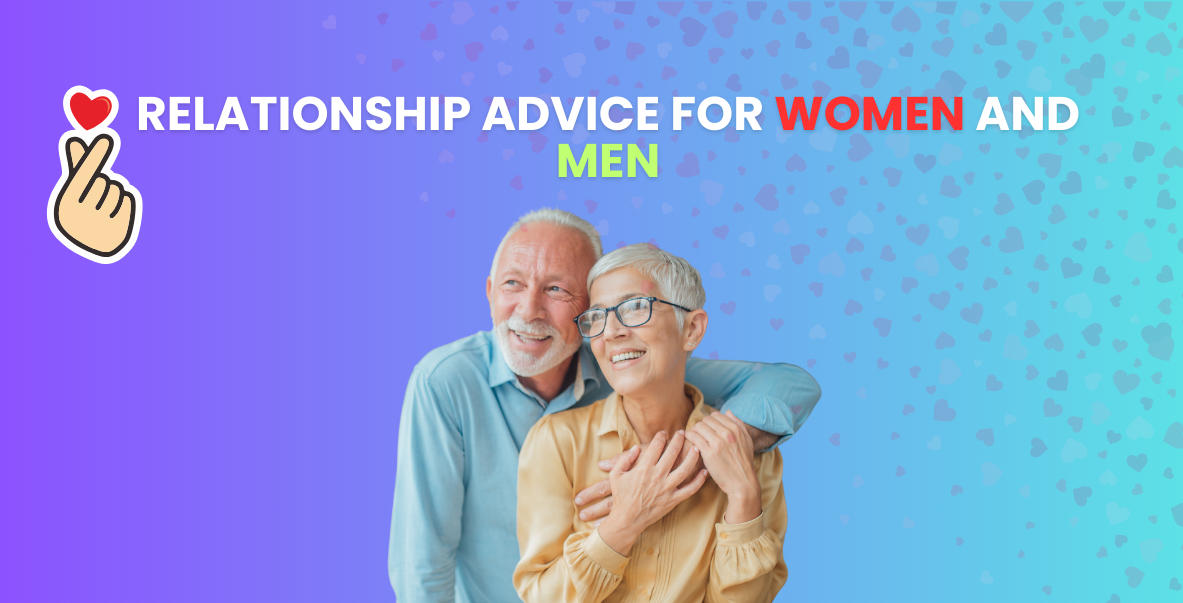Dating News
Dating After Divorce: Tips to Find Love Again
Discover essential tips for dating after divorce and increase your chances of finding love again. Start your new chapter today!

Understanding the UK Dating Scene After Divorce
Dating after divorce can feel daunting. It's like entering a new world, especially in the UK, with its own unique dynamics and possibilities. Understanding the nuances of British dating culture is essential for a positive experience and forming meaningful connections. This includes recognizing how societal views on divorce have changed and how this impacts dating.
Cultural Nuances and Shifting Attitudes
Dating expectations vary across the UK, influenced by cultural nuances in England, Scotland, Wales, and Northern Ireland. For instance, the stigma once associated with divorce has significantly diminished. This creates a more accepting atmosphere for finding love a second time around. This shift has led to a more open and understanding dating landscape, with more people seeking companionship after divorce.
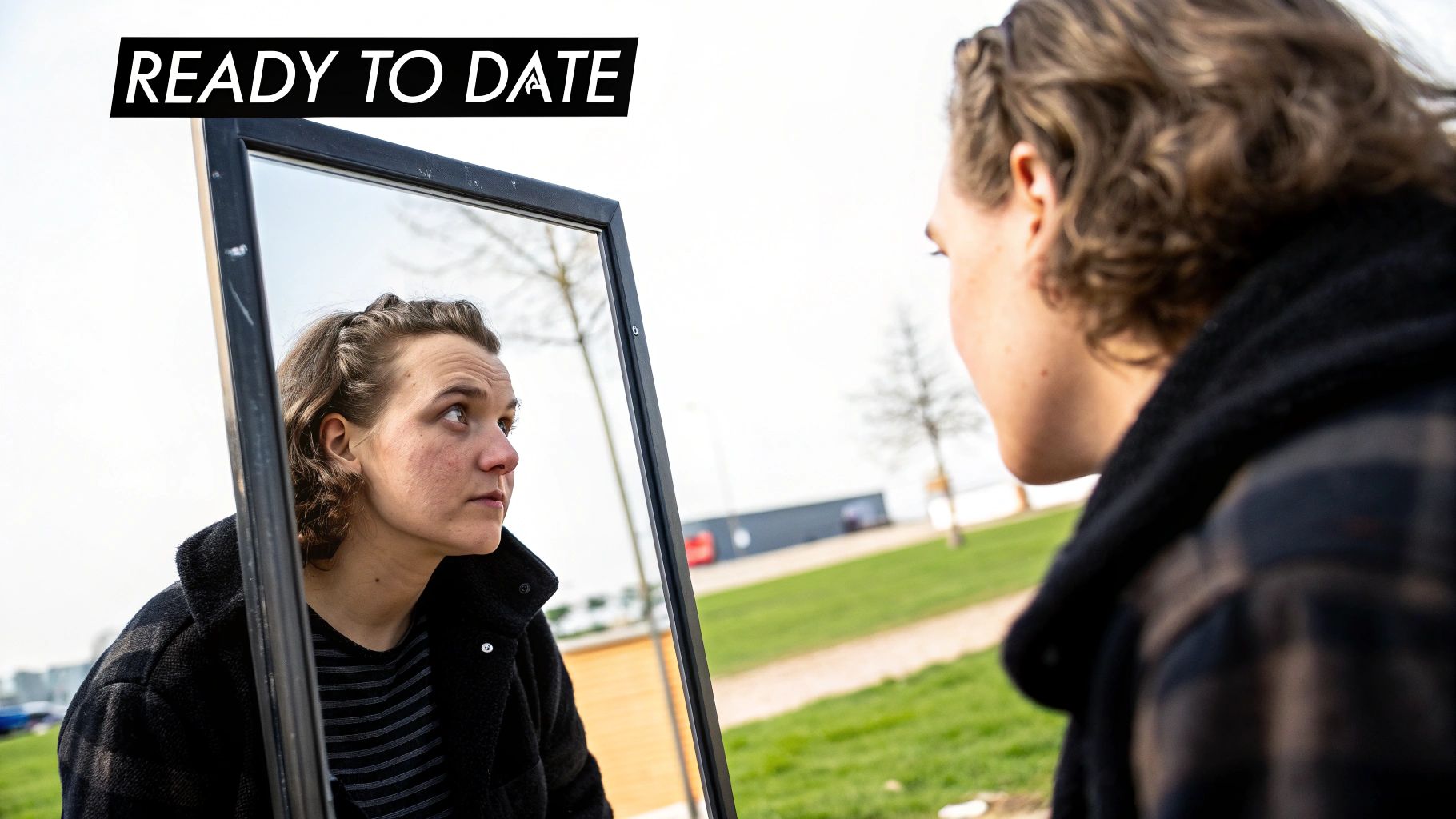
The Evolving Dating Pool
Changes in divorce trends across the UK have affected post-divorce dating. The average age of divorce has risen, with men typically divorcing between 45 to 47 years old and women between 42 to 45 years old. This later age of divorce shapes the dating pool, with individuals potentially approaching relationships with more maturity and consideration. You can explore UK divorce trends further in this article: Divorce in England. This also means people bring more life experience and established values to their relationships.
Challenges and Opportunities
Dating after divorce presents both hurdles and opportunities. Overcoming emotional baggage, like trust issues, can be challenging. However, this period also offers the chance for personal growth and self-discovery. Many individuals re-evaluate their priorities and what they seek in a partner. This reflection leads to more intentional dating, focused on genuine compatibility. Ultimately, understanding the UK dating scene after divorce means embracing change, navigating its complexities, and prioritizing authentic connections.
Preparing Emotionally For Dating After Divorce
After divorce, the idea of dating again can feel daunting. It's important to remember that emotional readiness is essential for a positive dating experience. This isn't about rushing into a new relationship, but about understanding yourself and your needs before re-entering the dating scene. You might be interested in: How to master the dating scene.
Healing And Self-Reflection
Divorce can be emotionally challenging. Taking time to heal and reflect on the past is crucial. This involves processing the end of your marriage, identifying personal emotional triggers, and understanding past relationship patterns. For example, acknowledging feelings of hurt, anger, or guilt is the first step toward healing.
Recognizing your role in past relationship dynamics allows for personal growth and healthier future connections. This self-awareness builds a stronger foundation for any future relationships.
Overcoming Emotional Hurdles
Dating after divorce often presents unique challenges. Trust issues, comparisons with your ex-spouse, and unrealistic expectations can hinder your progress. Addressing these hurdles directly is essential for moving forward.
Building self-confidence is key to navigating these challenges. Reconnect with your strengths, rediscover hobbies, and surround yourself with a supportive network of friends and family. Processing past experiences helps avoid repeating unhealthy patterns. This empowers you to approach dating with a positive and realistic mindset.
Building A Healthy Mindset
Developing a healthy mindset is important for attracting the right kind of partner. This involves setting clear boundaries, managing expectations, and prioritizing your own emotional well-being. Knowing what you want in a future partner and communicating your needs effectively are key components of healthy dating.
Being open to new experiences while maintaining realistic expectations creates a balanced and healthy approach to dating. This preparation will guide you towards more fulfilling connections.
Before jumping back into dating, consider the following checklist to assess your emotional readiness:
Emotional Readiness Checklist for Dating After Divorce
A comprehensive assessment tool to determine if you're emotionally prepared for dating, with indicators for each readiness level
| Emotional Indicator | Ready | Nearly Ready | Need More Time |
|---|---|---|---|
| Processing emotions related to divorce (sadness, anger, guilt) | Can acknowledge and manage these emotions without them overwhelming me. | Still experiencing these emotions, but working through them. | Overwhelmed by these emotions and struggling to cope. |
| Letting go of the past relationship | Have accepted the end of the marriage and moved on. | Mostly accepted the end of the marriage but still have occasional setbacks. | Struggling to let go and move on from the past relationship. |
| Identifying personal needs and desires | Have a clear understanding of what I want in a partner and a relationship. | Starting to understand my needs and desires but still unsure. | Uncertain about what I want in a future relationship. |
| Setting healthy boundaries | Can communicate my needs and boundaries effectively. | Sometimes struggle to communicate my needs and boundaries. | Difficulty setting and maintaining healthy boundaries. |
| Self-confidence | Feel confident and secure in myself. | Building self-confidence, but still have moments of insecurity. | Lacking confidence and struggling with self-esteem. |
This checklist offers a valuable self-assessment tool. By honestly evaluating where you stand on these indicators, you can gain a clearer picture of your emotional readiness for dating. Take your time, be patient with yourself, and prioritize your well-being throughout the process.
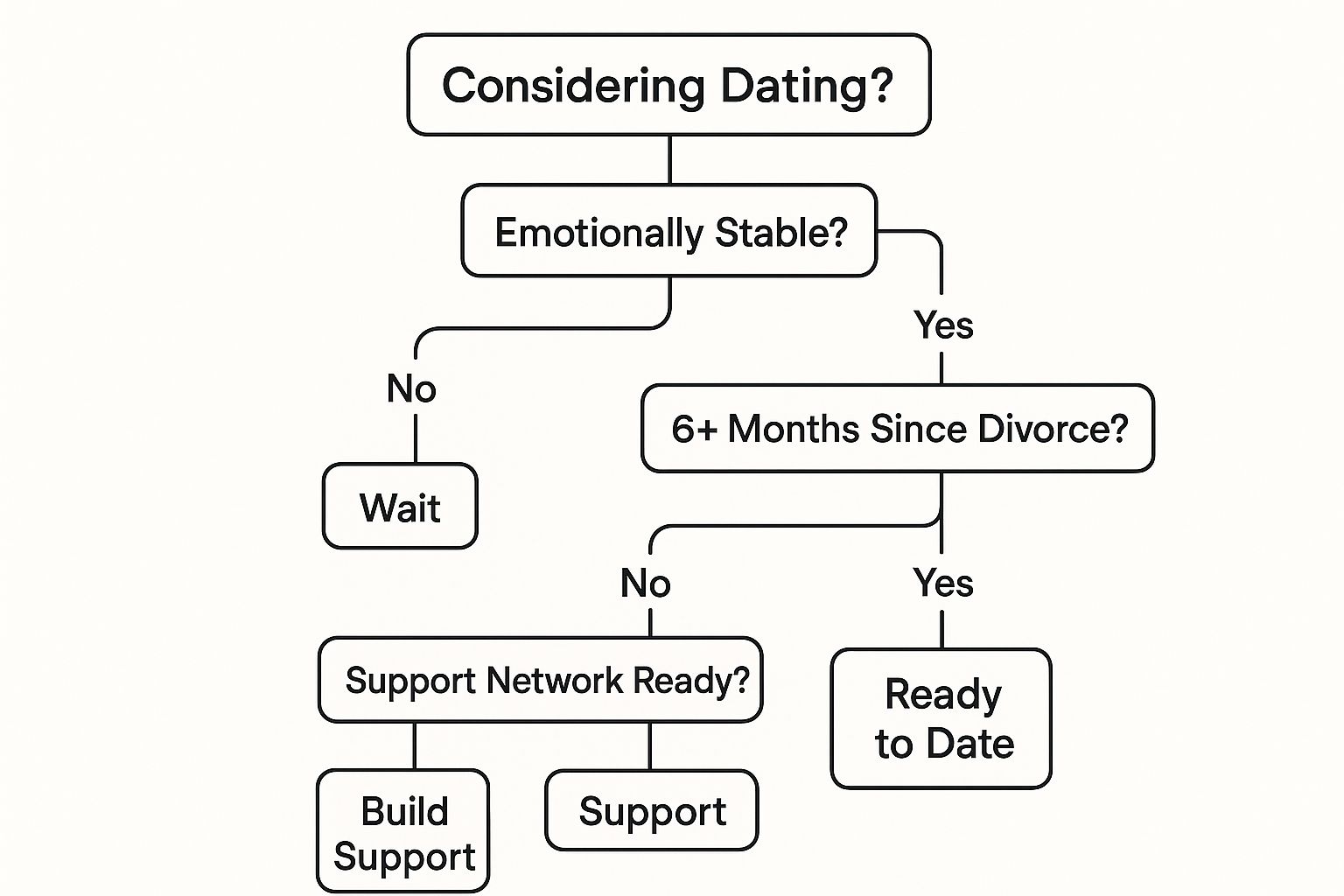
This infographic visualizes the decision-making process involved in determining if you are emotionally prepared for dating after divorce, based on factors like emotional stability, time since divorce, and the presence of a support network. As the infographic suggests, having a strong support system and allowing sufficient time for healing are just as crucial as emotional stability when starting to date again. Ensuring these factors are in place increases the likelihood of a positive dating experience.
Finding Quality Partners in Modern Britain
So, you're ready to start dating again? Forget the vague advice about "putting yourself out there." Finding a quality partner after divorce in the UK requires a more focused approach. It's about understanding where genuine connections truly happen.
Beyond the Apps: Real-World Connections
While dating apps have their place, exploring offline avenues can be surprisingly effective. Think local community events, hobby groups, or even volunteer organizations. These settings offer chances to connect with people who share your interests, building authentic connections right from the beginning. For example, joining a book club or a local rambling group can connect you with like-minded people in a relaxed environment.
Location, Location, Location
Interestingly, dating after divorce in the UK often begins in areas with a higher number of divorced individuals. Coastal towns like Norwich and Hastings, for example, have been called "divorce capitals" with roughly 12.8% and 12.1% of their populations divorced, respectively. These locations might attract individuals seeking a fresh start, creating a potentially more understanding dating scene. Find more statistics here: Divorce Capitals in England. This doesn't mean relocating is necessary, but it highlights how location can play a role in new beginnings.

The Power of Your Network
Don't underestimate the value of your current network. Friends and colleagues can be excellent resources for meeting new people. However, approach workplace relationships carefully, making sure to maintain professional boundaries. Also, using your friend group can lead to introductions within a trusted circle. This offers a built-in level of comfort and shared connections.
Embracing Modern Dating in the UK
Of course, dating apps have a significant role in modern Britain. Choose platforms known for meaningful connections instead of casual encounters. Create a profile that truly represents you, highlighting your strengths without focusing on the past. As you prepare for dating after divorce, consider seeking support to address any underlying issues; some find help through methods like hypnosis for depression. Crafting a strong online presence can greatly increase your chances of finding a compatible partner. This combines technology with a focus on real connection. Dating after divorce is a journey, not a destination. Be patient, focus on your well-being, and be open to exploring various ways to meet new people. By taking a thoughtful approach, you'll improve your odds of finding a fulfilling relationship.
Mastering Online Dating Platforms and Apps
Dating after divorce can feel daunting, especially with the prevalence of online dating. However, these platforms offer a valuable avenue for connecting with other singles, particularly for those returning to the dating scene. Success requires a strategic approach.
Choosing the Right Platform
The first step is selecting the appropriate platform. The UK offers a diverse range of dating apps and websites, each with its own distinct demographics and focus. Some prioritize serious relationships, while others cater to casual dating. Researching and comparing different platforms, considering aspects like user reviews and reported success rates, is essential. This helps you find a platform aligned with your personal goals. For example, eHarmony, known for its compatibility matching, might suit those seeking long-term commitment. Bumble, where women initiate contact, may appeal to those desiring greater control.
Creating a Compelling Profile
Your profile serves as your initial introduction in the digital dating realm. Creating a profile that authentically represents you while showcasing your positive qualities is crucial. Mentioning your divorced status can be addressed with sensitivity and optimism. Focus on your personal growth and what you seek in a partner. This transparency demonstrates maturity. Avoid negativity regarding your previous marriage. Instead, showcase your personality and interests. High-quality, current photos are also vital, allowing others to get a genuine sense of who you are.
Navigating Online Conversations
Once you connect with potential matches, effective communication is key. Be proactive and engage in your messages. Ask thoughtful questions to understand the person beyond their profile. Prioritize online safety. Avoid sharing excessive personal information too soon and always opt for a safe, public location for first dates. This fosters trust gradually.
Transitioning to Real-World Meetings
The purpose of online dating is to move from virtual interactions to real-world connections. Avoid prolonged messaging. If you sense a connection, suggest meeting for coffee or a drink. This allows you to assess chemistry offline. Dating after divorce is a process of self-discovery and identifying what you desire in a partner. Patience, managing expectations, and focusing on genuine connections are essential.
Handling Awkward Questions and Discussions
The topic of your divorce will likely arise. Honesty is important, but you can navigate these conversations without dwelling on the past or expressing resentment. Focus on the present and future, emphasizing what you’ve learned and what you seek now. If you have children, discussing them thoughtfully is essential. A brief mention in your profile is appropriate, reserving deeper conversations for when a connection is established. This allows you to gauge their understanding and respect for your family.
By applying these strategies, you can utilize online dating platforms effectively to connect with potential partners, build meaningful relationships, and find love again. Authenticity is paramount. Be yourself and focus on finding someone who appreciates you for who you are today.
Navigating First Dates and Early Relationship Dynamics
First dates after divorce can feel different. You're not only getting to know someone new, but also figuring out how and when to discuss your past. The goal is to create a comfortable and authentic connection. This requires planning, from choosing the right location to steering conversations in a positive direction.
Setting the Stage for Success
The venue you choose is key to a successful first date. Instead of loud clubs or packed restaurants, think about places in the UK that encourage conversation. Cosy pubs or independent coffee shops offer a more intimate setting. For more ideas, check out this guide on proven first date ideas for a successful romantic experience in the UK. A relaxed atmosphere helps everyone feel more at ease.
The Art of Conversation
Let the conversation flow naturally. Talk about shared interests and let your personality shine through. While discussing your divorce is important at some point, avoid making it the main topic of conversation. Focus on the present and the future. Share your hobbies, travel dreams, or favourite books. This shows you're moving forward and building a new chapter in your life.
Understanding Different Relationship Timelines
Dating after divorce often means navigating different relationship timelines. Your date may have never been married, recently divorced, or years past their own divorce. This can lead to different expectations and relationship goals. Honest and open communication is essential. Discuss what you're looking for, whether it's companionship or a long-term commitment.
Introducing Your Date to Your World
Introducing a new partner to your social circle, especially if you have children, is a big step. Approach these introductions thoughtfully. Start by mentioning your date to friends and family before arranging a casual group outing. This can help ease the transition and build a supportive environment.
Recognizing Red Flags and Healthy Patterns
As you begin dating again, it's crucial to recognize healthy relationship patterns. Pay attention to how your date interacts with others, manages conflict, and respects boundaries. These behaviours can offer valuable insights. Trust your instincts. If something feels off or reminds you of past relationship challenges, address it directly or consider moving on. Your past experiences have provided valuable lessons; use them wisely. Dating after divorce is a new beginning. Embrace this opportunity to create healthier, more fulfilling relationships by prioritizing open communication, respecting individual timelines, and recognizing the insights gained from your past experiences.
Introducing New Partners to Your Children
Dating after divorce presents unique challenges, especially when children are involved. Introducing a new partner to your children is a significant decision that requires careful thought and planning. This decision impacts not only your personal happiness but also your children's emotional well-being. It's crucial to approach these introductions with sensitivity and prioritize your children's adjustment throughout the entire process.
Gauging Relationship Stability
Before introducing a new partner, take time to assess the stability and seriousness of the relationship. Avoid introducing someone you're casually dating. Children can form attachments easily, and frequent introductions to new partners can be confusing and emotionally disruptive. Wait until your relationship has reached a committed stage, indicating a sense of permanence and stability. This approach ensures the introduction is meaningful and minimizes potential emotional upset for your children, providing a consistent and caring presence in their lives.
Age-Appropriate Discussions
Talking to your children about your dating life should be tailored to their developmental stage. Younger children may require simpler explanations, while older children can handle more in-depth discussions about relationships. Honesty and openness are essential, but avoid overwhelming them with unnecessary details. Answer their questions truthfully and reassure them of your unwavering love and support. This builds trust and helps them feel secure during this period of transition.
Managing Children’s Reactions
Children may react to a new partner with a wide range of emotions, from excitement and acceptance to resistance, jealousy, or confusion. Be prepared for these varied responses and offer reassurance. Acknowledge their feelings without judgment and create opportunities for open communication. Consider scheduling designated "family time" without your partner present. This reinforces your bond with your children and addresses any insecurities they may have, assuring them of their important place in your life while encouraging a positive relationship with the new partner.
To help guide you, here's a table summarizing some age-appropriate strategies for introductions:
| Child's Age | Recommended Timeline | Introduction Method | Key Considerations |
|---|---|---|---|
| Toddler (2-3) | Several months of consistent, committed dating | Brief, casual encounters in a comfortable setting like a park | Keep interactions short and playful; prioritize your child’s comfort |
| Preschool (4-5) | 6+ months of committed dating | Short visits, gradually increasing in length and frequency | Prepare your child in advance; involve them in choosing activities |
| Elementary School (6-12) | 6+ months to a year of committed dating | Gradual integration into family activities and outings | Encourage open communication; address any concerns or anxieties; involve them in planning some activities |
| Teenager (13-18) | After a year of committed dating or more, when discussing the future together feels natural | Respectful and open dialogue; involve them in decisions regarding the introduction | Recognize their need for independence and autonomy; prioritize honest communication and allow them to adjust at their own pace |
This table provides general guidelines, and the best approach will depend on your individual child and family circumstances. The goal is to create a comfortable and supportive environment for everyone involved.
Setting Healthy Boundaries and Co-Parenting
Maintain clear boundaries between your romantic life and your parenting responsibilities. Avoid involving your new partner in disciplinary actions or parenting decisions early in the relationship. Instead, focus on building a positive relationship between your partner and your children based on mutual respect and shared experiences. This allows a natural and comfortable bond to develop without disrupting existing family dynamics. Additionally, communicate respectfully with your ex-spouse about new relationships, especially when it involves introductions to the children. Open communication and respectful co-parenting contribute significantly to a stable and supportive environment for everyone. This approach prioritizes the well-being of the children and ensures a smoother transition.
Creating Positive Experiences
Concentrate on creating positive and inclusive experiences for your children and your new partner. This might involve shared activities like family meals, trips to the park, or attending events together. The focus should be on building shared positive memories, fostering a sense of family unity and acceptance. This helps children adapt to the changing family dynamic and facilitates the formation of strong, healthy bonds.
These guidelines provide a framework for navigating this sensitive situation with care and consideration, promoting the emotional well-being of both you and your children. By prioritizing open communication, setting healthy boundaries, and creating positive experiences, you can cultivate a healthy and successful blended family. Remember, dating after divorce is a journey, not a race.
Building Lasting Relationships After Divorce
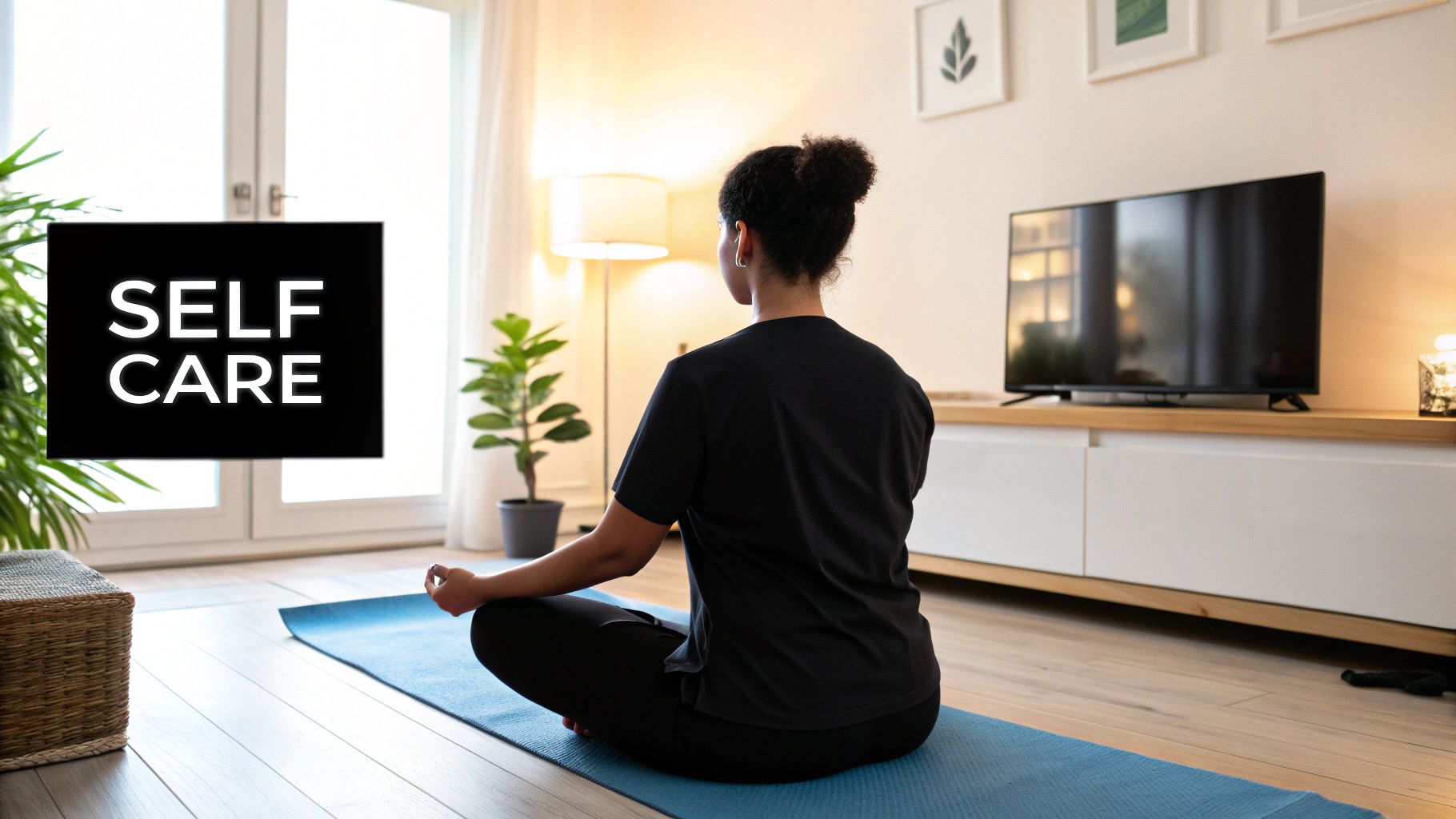
Moving from casual dating to a committed relationship after divorce requires a new approach. Interestingly, your previous marriage can be a valuable resource. This section explores how to use the lessons learned to build stronger, more fulfilling partnerships.
Communicating Effectively
Open and honest communication is essential for a lasting relationship. This means clearly expressing your needs, boundaries, and expectations based on past experiences.
For example, if trust was an issue in your previous marriage, emphasize the importance of honesty and transparency with your new partner. This builds understanding and a solid foundation. For more insights, check out this helpful resource: Relationship Advice for Women and Men.
Navigating Complexities
Dating after divorce often involves navigating blended families and financial planning with a new partner. These conversations are crucial for long-term compatibility.
Deciding about remarriage is another significant step that requires careful thought and open communication. When introducing new partners, consider the legal implications and establish a sound plan, especially in regards to estate planning for families. This proactive approach can prevent future issues.
Maintaining Individuality Within Partnership
A strong partnership doesn’t require sacrificing individuality. Maintaining your own identity, interests, and support network is vital while building a shared life.
This balance ensures both partners feel fulfilled and respected, allowing each to contribute unique strengths and perspectives, enriching the relationship.
Creating New Traditions
After divorce, you have a fresh start to create traditions and relationship patterns. This might involve shared hobbies, regular date nights, or new ways to celebrate holidays.
These shared experiences create lasting memories and strengthen your bond, building a relationship that truly reflects your shared values.
Managing Ongoing Relationships
Building a lasting relationship after divorce often involves managing relationships with ex-spouses, especially with children involved. Respectful co-parenting is essential for children’s stability and reduces potential conflict.
Healthy boundaries with your ex-spouse are crucial for building trust and security in your new relationship. A supportive network of friends and family can provide valuable guidance, but ensure this network strengthens, rather than undermines, your new relationship.
Building a successful relationship after divorce takes time and effort. By learning from the past and prioritizing your needs, you can create a fulfilling and lasting partnership. Looking for more support? Visit DatingBlog.co.uk for advice and resources.
Dating News
How to Spot Fake Dating Profiles A Modern Guide
Learn how to spot fake dating profiles with our guide. We cover photo analysis, message red flags, and verification tips to keep you safe online.

When you're trying to spot a fake dating profile, it's all about looking for things that just don't add up. Think photos that look a little too perfect, bios that say a lot of nothing, and messages that go from zero to a hundred way too fast. A real person's profile usually has a certain consistency and a touch of real-life messiness. Fakes, on the other hand, often have little tells that give the game away—if you know what you’re looking for.
The Reality of Fake Profiles in Modern Dating

Let's be honest, jumping into online dating means you're going to come across fake profiles. They're not just a small-time nuisance; they're a massive problem. The reasons behind them vary wildly, from elaborate financial scams to someone just catfishing for an ego boost. Getting your head around why these profiles exist is the first move in learning how to protect yourself.
Scammers have a well-worn playbook. They’ll often use AI-generated images or pinch photos from someone else's social media, invent detailed but strangely generic backstories, and fire off scripted messages that are all about building a connection as quickly as possible. And this happens far more often than you'd think.
It's a widespread issue. A recent survey found that 54% of UK online daters have spotted suspicious profiles or got dodgy messages at least once a week. That number really brings home how often genuine people are bumping into potential scams.
Now, this isn't to put you off online dating entirely. Far from it. The goal is to arm you with the right knowledge. When you can recognise the classic tactics, you can swipe with a lot more confidence. It's about changing your approach from just flicking through profiles to actively vetting who you're talking to.
Common Motivations Behind Fake Accounts
Understanding why someone would create a fake profile can really help you sharpen your instincts. Most of them fall into a few predictable categories.
- Financial Scams: This is the big one. Scammers play the long game, building an emotional bond before suddenly having a "crisis" that only your money can solve.
- Catfishing: This is all about creating a fake identity to lure someone into a relationship. The motive could be anything from loneliness and personal validation to pure entertainment.
- Malicious Bots: Some fake profiles aren't even run by a person. They’re automated bots programmed to spam you with links to dodgy adult sites or other phishing scams.
The numbers don't lie. Recent data reveals that romance scams are behind 36% of all reported incidents in the UK, with catfishing not far behind at 29%. You can dive deeper into the data on UK online dating threats to see how these trends are shifting. Being aware of the scale of the problem is a powerful tool. It helps you spot those early red flags before you get too emotionally invested.
Decoding Profile Photos for Red Flags
When you're trying to figure out if a dating profile is genuine, the photos are always the best place to start. It’s easy to be drawn in by an attractive picture, but I’ve learned that the real clues are often hidden in the details. You have to look past the smile and really examine what you're seeing.
One of the most powerful tools you have is a reverse image search. It's a simple, free check that tells you if their photo has been lifted from somewhere else online—like another person's social media, a stock photo site, or even a model's portfolio. Honestly, this one step can save you so much time and trouble by exposing a fake right away.
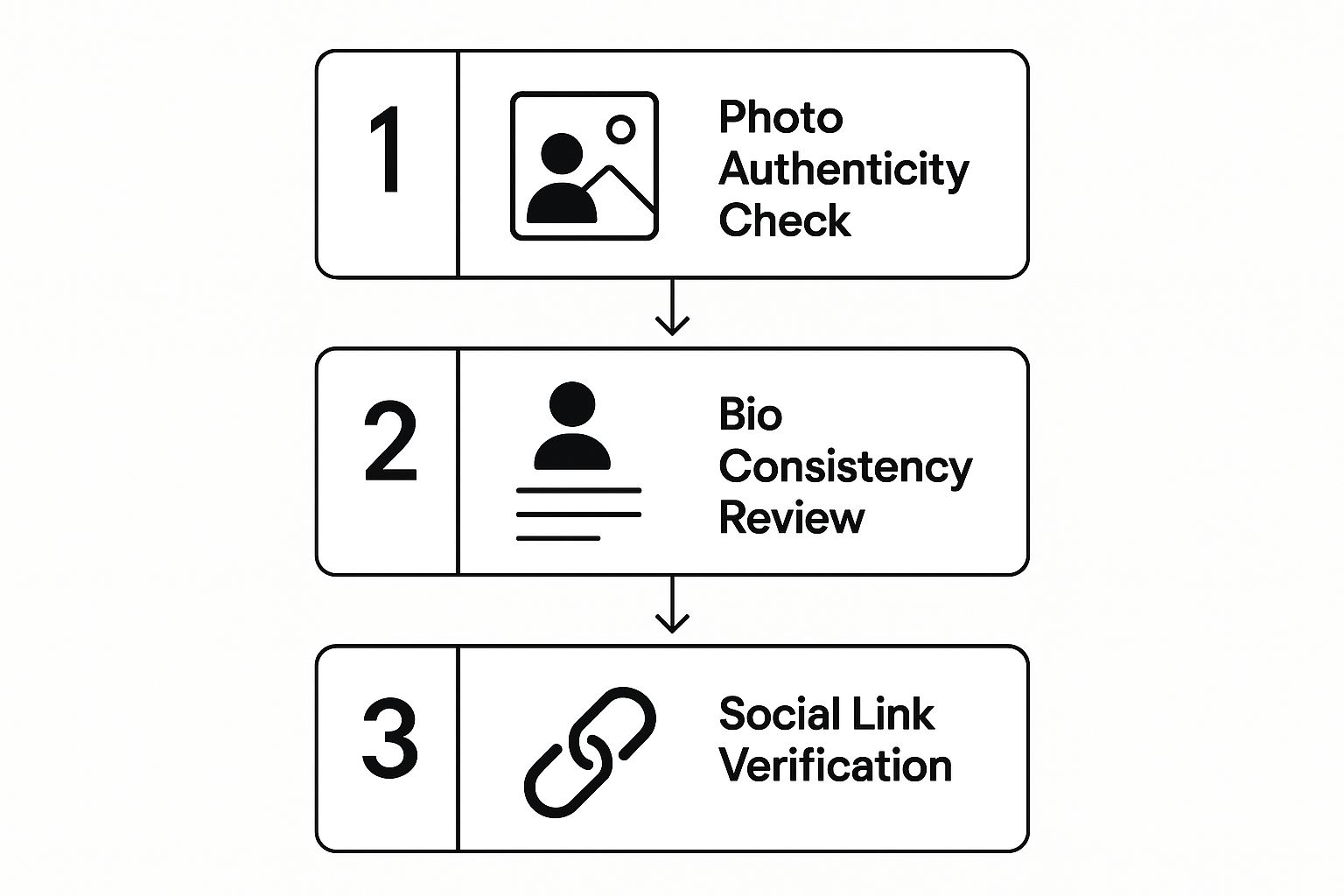
As you can see, checking the photos is a crucial first move, but it's part of a bigger picture that includes looking for consistency across their bio and any other connected accounts.
Common Visual Giveaways
Once you've done a reverse image search, it's time to put on your detective hat and look for other tell-tale signs. Scammers rarely have a full library of candid pictures, and this limitation often reveals itself in predictable ways. Keep an eye out for these classic red flags:
- All Professional Shots: Does every photo look like it came from a magazine shoot? Real people have a mix of pictures—messy holiday snaps, blurry photos with friends, and selfies taken in bad lighting. A profile full of nothing but polished headshots is a major giveaway.
- The Lone Photo: A profile with only one picture is a huge red flag. It's easy for a scammer to find and steal one great photo, but finding a whole album of the same person is much more difficult. Be very suspicious.
- Weirdly Inconsistent Quality: Pay attention to how the photos look together. If one is super sharp and high-res, but the next is grainy and pixelated, it strongly suggests the images were cobbled together from different places on the internet.
When you're looking at profile pictures, it's easy to get bogged down in the details. To make it simpler, I've put together a quick checklist to help you systematically analyse what you're seeing.
Red Flag Photo Analysis Checklist
| Red Flag | What It Looks Like | What You Should Do |
|---|---|---|
| Too Perfect | Every photo is a professional, flawless headshot. No candid or casual shots. | Run a reverse image search to see if the photos appear elsewhere online. |
| Only One Photo | The profile contains a single, often very attractive, picture. | Ask them for another photo or to video chat. A scammer will usually have an excuse. |
| Mismatched Quality | Some photos are crystal clear, while others are blurry, cropped oddly, or pixelated. | This suggests photos were scraped from various online sources. Treat the profile with caution. |
| No Social Context | The person is always alone in their photos. No pictures with friends or family. | Real people usually have photos showing their social life. A lack of this can be a warning sign. |
| Odd Details | Noticeable editing, strange backgrounds, or details that don't match their story (e.g., winter clothes but they claim to live in a hot climate). | Trust your eyes. If something feels off, question it directly or move on. |
Using a simple checklist like this helps you stay objective and spot patterns you might otherwise miss. It turns a gut feeling into actionable evidence.
At the end of the day, trust your instincts. If the photos just feel staged, too polished, or a bit off, it’s worth taking a step back. With some estimates suggesting that up to 10% of all dating profiles are fake, a bit of healthy scepticism is your best friend. When a profile seems too good to be true, it often is.
Reading Between the Lines of Their Bio

A scammer's profile biography is often a house of cards, built with vague clichés and glaring inconsistencies. The photos might look convincing at first glance, but the bio is usually where their story starts to fall apart. Think about it: genuine profiles tend to have a personal, sometimes even quirky, flavour to them.
Fake profiles, on the other hand, often feel bland and generic. They’re designed to cast the widest net possible. You'll see phrases like "loves travelling, movies, and having a laugh." While lots of people enjoy these things, a profile that offers no specifics is a red flag. A real person might mention they’re saving up to see the Northern Lights or that they’re obsessed with 80s horror films. A scammer just keeps it vanilla.
Vague Descriptions and Emotional Hooks
Be on the lookout for bios filled with dramatic life stories that sound a bit too much like a film plot. Scammers love to use emotional hooks, often claiming to be a widowed doctor working abroad or an international entrepreneur facing a sudden, dramatic crisis. These stories are crafted to make you feel instant sympathy, fast-tracking a sense of intimacy that isn't real.
If their life story reads like a soap opera script and their hobbies are as generic as a stock photo, it’s a major warning sign. Real people are much more nuanced and specific.
Poor grammar and spelling can be another dead giveaway, especially if it doesn't match their supposed background. If someone claims to be a "highly educated professor from London" but their profile is riddled with basic mistakes, you should definitely pause for thought. These are the little threads you can pull to unravel the entire fake persona.
Finally, do a quick sense-check. Does their claimed job and location line up with their described lifestyle? If they say they're a struggling artist but their bio talks about frequent luxury trips, something just doesn't add up.
For more insights on building an authentic profile and spotting genuine effort in others, check out our comprehensive dating tips for success.
Spotting the Red Flags in Their Messages
Once you start chatting, a scammer’s true intentions really start to show. The way they message is often the biggest giveaway because it’s all designed to play on your emotions and bypass your common sense. A real connection takes time to grow, but a scammer wants to rush intimacy.
One of their go-to moves is love bombing. This is where they shower you with over-the-top affection and declare their undying love at a speed that feels… well, a bit unsettling. If someone you’ve been talking to for three days is already calling you their soulmate, it’s not romantic—it’s a huge red flag.
If their messages feel like a perfectly polished script, it’s because they probably are. Scammers often rely on pre-written lines meant to pull at your heartstrings, telling you exactly what you want to hear and mirroring your dreams with uncanny precision.
This tactic is disturbingly effective, which is why you need to keep a level head. Recent figures from the Barclays Scams Bulletin revealed that romance fraud in the UK shot up by 20% year-on-year. Even more concerning, 21% of adults on dating apps have been asked for money. You can read the full breakdown on the rise of UK romance scams to see just how widespread this issue has become.
The Classic Excuses and Inevitable Demands
A massive warning sign I see all the time is a complete refusal to meet up or even jump on a quick video call. Scammers always have a ready-made excuse.
- "My camera is broken." Honestly, this is the oldest trick in the book. It’s 2024; almost everyone has a functioning camera in their pocket.
- "I'm working on an oil rig / serving overseas." By creating a situation where meeting is physically impossible, they can keep the con going for months.
- "Let's chat on WhatsApp instead." This is a big one. They want to get you off the dating app’s secure platform as fast as possible, moving the conversation somewhere their account can’t be easily flagged or reported.
And then comes the final, undeniable proof you’re talking to a scammer: the request for money. The story will be heart-wrenching and urgent—a sudden medical bill, a lost wallet while travelling, or a business investment that’s about to fall through. No matter how genuine it sounds, you must never send money to someone you only know from online.
Knowing how to write a good opening message is great, but knowing when to walk away is far more important. If you want to polish your own approach (the genuine kind!), you can take a look at our guide on how to impress with a first message on a dating app.
How to Discreetly Verify Their Identity

A bit of simple verification now can save you a world of heartache later. After you've scrutinised their photos and bio, it’s time to see if their story holds up across the web. This isn't about playing detective; it's about being savvy and using simple checks to confirm they are who they say they are.
A quick, non-intrusive search is the perfect place to start. Just use their name and any other breadcrumbs they’ve dropped—like their job title or city—and see what pops up on other social or professional sites.
Building a Consistent Picture
Searching for them on platforms like LinkedIn or even Instagram can tell you a lot. What you're looking for aren't exact one-to-one matches, but the hallmarks of a real, lived-in digital life. Is there a LinkedIn profile that backs up their claimed profession and career path? Does their Instagram have photos with friends and family that stretch back a few years?
Keep an eye out for these tell-tale signs of an authentic digital footprint:
- Consistency Across Platforms: The details on their LinkedIn should roughly match what they've told you and what’s on their dating profile.
- Signs of Genuine Activity: A real social media account will often have tagged photos, comments from friends, and a posting history that spans years, not weeks. A brand-new account with a handful of posts is a major red flag.
- Mutual Connections: On some networks, you might even find you have friends in common—a massive green flag for legitimacy.
Here's something to keep in mind: a complete absence of a digital footprint can be just as suspicious as conflicting information. In this day and age, very few people have zero online presence. It could mean they’re hiding something, or that the person you're talking to is a complete fabrication.
This kind of basic online vetting helps you piece together a more complete, trustworthy picture of the person on the other end. It’s a straightforward but incredibly effective way to spot a fake profile before you get too invested.
What to Do When You Suspect a Fake Profile
That sinking feeling when you realise the person you're talking to might not be real is deeply unsettling. But don't panic. The most important thing is to act decisively to protect yourself and stop them from preying on anyone else.
Your best friends in this situation are the block and report functions. Every decent dating app has them, and you shouldn't think twice about using them. Reporting flags the profile for the app's safety team to investigate and, hopefully, remove. Blocking cuts off all contact immediately, giving you instant peace of mind. It’s a clean break.
Taking Decisive Action
This is why it pays to choose dating apps with robust safety features right from the start. Things like photo verification, often shown as a blue tick or badge, mean the platform has at least tried to confirm the user is who they say they are. It’s not foolproof, but it’s a simple hurdle that makes life much harder for a scammer.
Trust your gut. It's your most reliable tool in online dating. If something feels off, it probably is. Don't get drawn into a game of trying to expose them—just report, block, and move on. Your emotional energy is as valuable as your personal data.
Learning to handle these situations is, unfortunately, part of the modern dating experience. For more guidance on building safer and more genuine interactions, check out our guide on relationship advice for stronger connections.
If You've Already Sent Money or Information
If things have gone further and you've shared sensitive details or, worse, sent money, you need to act fast. It's easy to feel embarrassed, but please don't. These scammers are masters of manipulation, and their tactics can fool even the savviest people.
Here’s what you need to do, right now:
Contact your bank or credit card company immediately. Tell them you've been a victim of fraud. They can take steps to stop any further payments and will advise you on the chances of recovering your money. The quicker you act, the better.
Report the crime to Action Fraud. This is essential. Action Fraud is the UK’s national centre for reporting fraud and cybercrime. Filing a report creates an official record and helps the authorities build a case against these criminals.
The scale of this problem is staggering. Between early 2020 and late 2024, UK authorities dealt with almost 40,000 reported cases of dating fraud, with victims losing a colossal £409.7 million. You can learn more about the latest UK dating scam statistics to understand just how widespread this is. Your report is a crucial step in fighting back.
At DatingBlog.co.uk, our mission is to help you navigate modern romance safely and with confidence. You'll find more expert advice, in-depth app reviews, and insights across our site. Start your journey to better connections at https://datingblog.co.uk.
Dating News
7 Fun 1st Date Ideas to Try in the UK (2025)
Tired of the usual? Discover our curated list of fun 1st date ideas to make a lasting impression. Find unique and creative options to suit any budget in the UK.

Stepping into the dating world can feel like navigating a maze of clichés. The predictable 'let's grab a drink' suggestion, while safe, often misses the opportunity to create a truly memorable connection. A first date is your initial canvas; it's a chance to paint a picture of who you are and genuinely discover the person sitting opposite you. This is why exploring more engaging and fun 1st date ideas is not just about being different, it's about creating a shared experience that sparks real conversation.
A well-chosen activity reveals personality in ways a simple chat over a pint might not. Whether you're swiping on apps or meeting someone through friends, the right setting can break the ice effortlessly and set the stage for something meaningful. This guide is organised to move beyond the ordinary, offering a curated list of seven dynamic, practical, and enjoyable ideas tailored for the modern UK dater. We'll explore options for every budget, interest, and season, providing the actionable insights you need to plan a first encounter that feels authentic and exciting. Forget awkward silences and think shared laughter, friendly competition, and genuine moments of discovery.
1. The Upgraded Classic: A Specialty Coffee Shop Date
Meeting for a coffee is a timeless first date for good reason. It’s a low-pressure, low-commitment way to test the waters and see if there’s a spark. However, you can elevate this simple meet-up from a mundane interview into a memorable experience by choosing the right venue. Instead of a generic chain, opt for an independent roastery or a café with a distinct personality. This simple choice demonstrates thoughtfulness and a bit of local savvy, setting a positive tone right from the start.

The goal is to find a place that offers more than just caffeine; it should be a conversation starter in itself. A unique setting provides an immediate topic of discussion, helping you bypass the initial awkwardness. Whether it's the quirky decor, the intricate brewing methods, or a unique theme, the environment itself can help fuel natural, flowing conversation. This makes it one of the most reliable and fun 1st date ideas for getting a genuine feel for someone’s personality.
How to Make It a Success
To ensure your coffee date is a hit, a little preparation goes a long way.
- Location is Key: Choose a spot that is convenient for both of you. A café with comfortable seating and a moderate noise level is crucial for easy conversation. Consider places like a cosy café-bookstore where you can browse shelves, or an artisan bakery known for its incredible pastries.
- Do Your Homework: Take five minutes to research the café online. Check their menu for interesting drinks or snacks you can recommend. Knowing they have a signature lavender latte or award-winning cinnamon buns shows initiative.
- Logistical Grace: Arrive a few minutes early to grab a good table, preferably one that isn’t too close to the door or the noisy counter. Be prepared to pay for both drinks; it’s a small, courteous gesture that is always appreciated, regardless of who initiated the date.
2. Art Gallery or Museum Visit
For a first date that feels sophisticated and sparks intellectual curiosity, a visit to an art gallery or museum is an excellent choice. This idea moves beyond the standard interview format of a coffee date, providing built-in talking points that can reveal a person’s creativity, sense of humour, and perspective on the world. It’s an interactive experience that encourages movement and shared discovery, which helps to ease first-date jitters and create a sense of partnership.

Exploring exhibits together allows conversation to flow naturally from your surroundings. You can discuss which pieces you love, which ones you find bizarre, and what emotions they evoke. This shared activity is one of the most fun 1st date ideas because it helps you learn about each other’s tastes and interests in a dynamic and low-pressure environment. Whether you're analysing a classic painting or experimenting with a hands-on science exhibit, you're creating a shared memory from the outset.
How to Make It a Success
A little planning can turn a simple museum trip into a truly impressive date.
- Choose the Right Exhibition: Pick a gallery or museum that aligns with a potential shared interest, or choose one with a diverse collection. A museum with a special, temporary exhibition adds a sense of timeliness. Consider a local history museum, a contemporary photography gallery, or even a science museum with interactive displays.
- Check the Logistics: Research opening times and admission fees beforehand. Many museums have free admission days or late-night openings with a more social atmosphere, which can be a perfect date-night setting. Allow at least two hours for the visit so you don't feel rushed.
- Plan a Follow-Up: Having a plan to grab a coffee, drink, or light meal at a nearby café afterwards is a great move. It provides a relaxed setting to discuss your favourite pieces and continue the conversation. This thoughtful touch can make the entire experience feel more complete and considered, as detailed in these proven first date ideas for a successful romantic experience.
3. Farmers Market or Food Festival
For a date that’s vibrant, interactive, and full of flavour, a trip to a local farmers market or a bustling food festival is an unbeatable choice. This idea moves away from a static, face-to-face setup and into a dynamic environment. Strolling through colourful stalls of fresh produce, artisan cheeses, and sizzling street food provides endless natural conversation starters, making it one of the most engaging and fun 1st date ideas for discovering shared tastes.

The sensory-rich atmosphere allows you to learn about each other in an organic way. You’ll quickly discover their feelings on everything from spicy food to sweet treats, all while enjoying a light physical activity. It’s a low-pressure setting where you can move at your own pace, sampling goods and supporting local vendors. This shared experience feels less like an interview and more like a small adventure, creating a positive and memorable foundation.
How to Make It a Success
A little planning can transform a simple market visit into a fantastic date.
- Pick the Right Venue: Not all markets are created equal. Look for one with a good mix of food stalls, produce, and perhaps even live music to enhance the atmosphere. A seasonal harvest festival, a weekly city market, or a specific food truck event all offer unique vibes.
- Logistical Prep: Arrive early to avoid the biggest crowds and get the best selection. Many vendors still prefer cash, so bring some with you just in case. Also, dressing comfortably is a must; you’ll be on your feet, so practical footwear is key.
- Embrace Sharing: The best part of a food-focused date is trying things together. Suggest sharing a few small items, like a gourmet sausage roll or a box of fresh berries. This creates natural moments of connection and collaboration, helping you bond over a shared culinary experience.
4. Mini Golf or Bowling
Engaging in a light-hearted activity is a fantastic way to break the ice and inject some playful energy into a first meeting. Mini golf or bowling are classic choices because they shift the focus from intense, face-to-face conversation to a shared, interactive experience. This creates natural lulls and highs, allowing conversation to flow more organically around the activity, which is perfect for easing first-date jitters. It’s a chance to laugh at a missed putt or a gutter ball, revealing a lot about someone's sense of humour and how they handle a little friendly competition.
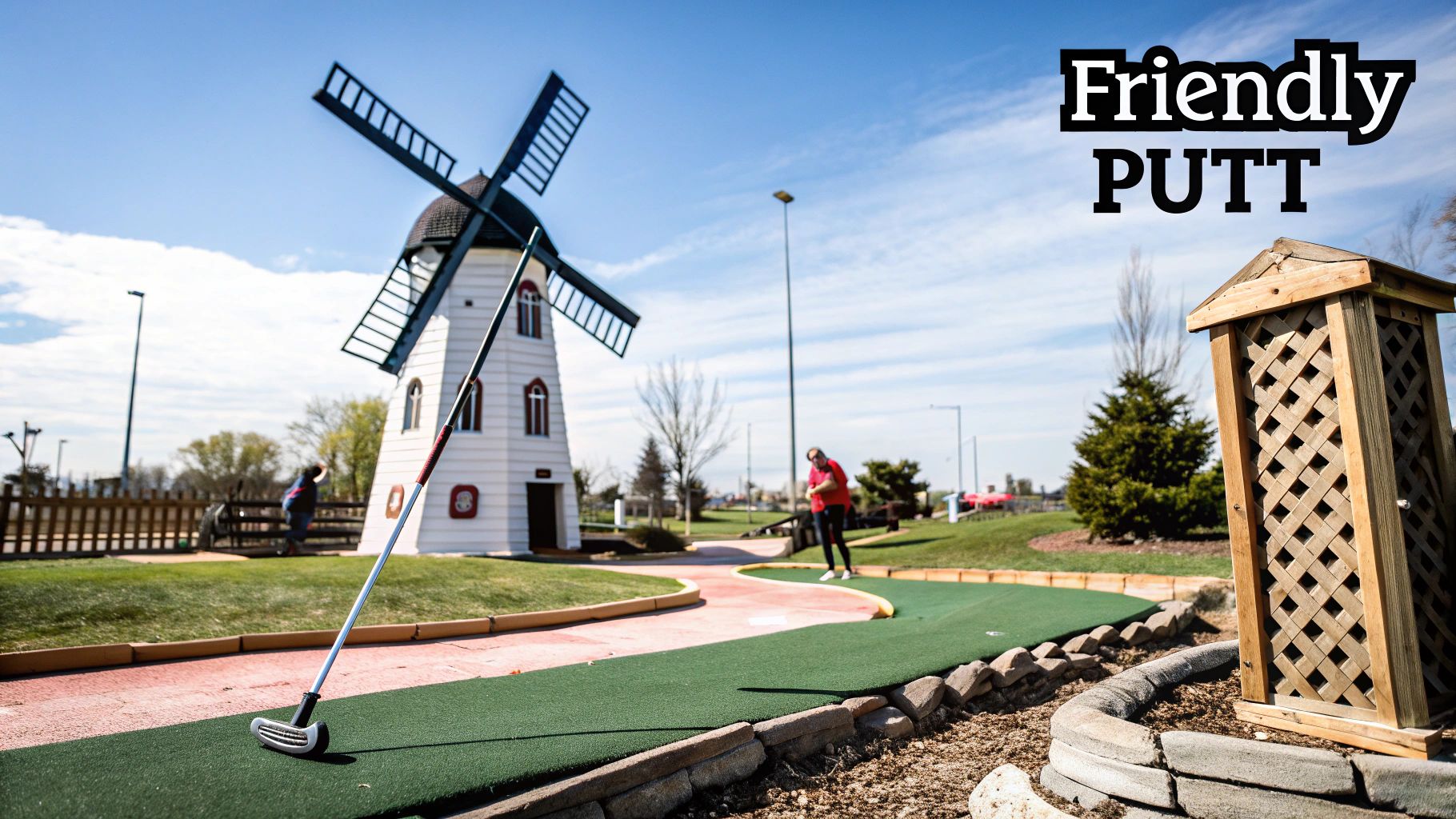
Choosing an activity-based date like this signals that you’re up for a bit of fun and not just a formal interview. The shared goal, whether it’s conquering a windmill obstacle or trying for a strike, builds instant camaraderie. These types of fun 1st date ideas are less about showcasing athletic skill and more about creating shared memories and observing how you interact together in a low-stakes, entertaining environment.
How to Make It a Success
A successful activity date is all about the atmosphere and attitude.
- Pick the Right Venue: Ambiance is crucial. Look for a quirky, themed mini-golf course with creative obstacles or a retro bowling alley with a cool, vintage vibe. Some venues even offer glow-in-the-dark or cosmic bowling sessions, adding another layer of novelty to the experience.
- Keep it Playful, Not Competitive: The goal is connection, not victory. Keep the mood light and focus on having fun together. Offer encouragement, celebrate good shots (both yours and theirs), and laugh off the bad ones. Your reaction to a silly mistake says more than a perfect score ever could.
- Plan a Post-Game Chat: The activity is a great icebreaker, but you still need time to talk. Choose a venue that has an attached bar, café, or arcade. This makes it easy to grab a drink or a snack afterwards to discuss the game and get to know each other better without the pressure of the activity itself.
5. Cooking Class or Food Workshop
Diving into a cooking class or food workshop is a fantastic way to bypass traditional first date nerves. Instead of facing each other across a table, you’re working side-by-side, creating something delicious together. This shared activity fosters collaboration and reveals a lot about a person’s ability to work as a team, their patience, and how they handle a little culinary chaos. It’s an engaging, hands-on experience that ends with a rewarding meal you both helped prepare.
This date idea is perfect because it combines learning a new skill with genuine interaction. The structure of the class provides natural conversation prompts, eliminating the pressure to constantly think of what to say next. Whether you're mastering the art of pasta-making, rolling sushi, or decorating cupcakes, you’re building a shared memory right from the start. This makes it one of the most interactive and fun 1st date ideas for creating an immediate bond.
How to Make It a Success
A successful culinary date hinges on choosing the right class and having the right mindset.
- Choose Wisely: Pick a cuisine or skill you both find exciting. Italian, Thai, or even a baking workshop are usually safe bets. Check local culinary schools, community centres, or even restaurants that host special classes. Ensure the class length fits a first date, aiming for around two to three hours.
- Book in Advance: Popular classes fill up quickly, so book your spot well ahead of time. This shows great planning and ensures you won’t face a last-minute disappointment. Arrive with an appetite, as you’ll almost always get to enjoy the fruits of your labour at the end.
- Embrace the Experience: Don’t worry about being a master chef. The goal is to have fun, not to achieve culinary perfection. Be prepared to laugh at mistakes, help each other out, and enjoy the process. Wear comfortable clothes and closed-toe shoes suitable for a kitchen environment. While a gift isn't expected on a first date, you might find some inspiration for the future; you can discover some thoughtful gift ideas on datingblog.co.uk if things go well.
6. Outdoor Adventure (Hiking, Park Walk, Beach)
Swapping the confines of a café or bar for the great outdoors can be a refreshing and dynamic way to get to know someone. An outdoor date, whether it’s a scenic hike, a relaxed park walk, or a stroll along the beach, removes the pressure of constant eye contact and allows for more natural, side-by-side conversation. This setting provides a shared experience and beautiful scenery, offering plenty of organic talking points to keep the dialogue flowing.
The beauty of this date is its simplicity and flexibility. It taps into a sense of shared discovery, creating a memorable "we did this together" moment right from the start. Plus, the light physical activity can release endorphins, helping both of you feel more relaxed and positive. Choosing an outdoor activity is one of the most enjoyable and fun 1st date ideas for active people or anyone looking to break away from the conventional sit-down meet-up.
How to Make It a Success
A successful outdoor date is all about thoughtful planning and clear communication.
- Choose the Right Location: Select a route or location that matches both of your fitness levels. A sprawling urban park like London’s Richmond Park, a gentle coastal path, or a well-marked nature trail are excellent choices. Ensure it's a popular and safe public area.
- Communicate Clearly: Be upfront about the plan. Let your date know what to expect regarding the terrain and duration, so they can dress appropriately in comfortable shoes and weather-suitable clothing. This shows consideration for their comfort.
- Come Prepared: Check the weather forecast beforehand and have a backup plan (like a nearby pub or café) if it turns. Bring essentials like water, a couple of light snacks, and make sure your phone is fully charged. Planning ahead for parking or public transport saves a lot of stress.
7. Local Event or Festival
Diving into a local festival or community event is a fantastic way to break free from traditional date formats. Instead of a one-on-one interview, you share an experience, creating instant common ground and a dynamic environment filled with energy and things to talk about. This option shows you're engaged with your community and open to vibrant, spontaneous fun.
The beauty of a festival date lies in its built-in entertainment and relaxed atmosphere. Whether it’s an outdoor movie screening, a local music festival, or a cultural food fair, the event itself provides a constant source of amusement and conversation. This shared activity helps ease any initial pressure, allowing you to observe how your date interacts with the world around them while building a stronger connection. This approach makes it one of the more memorable and fun 1st date ideas for creating a shared story from the very beginning.
How to Make It a Success
A little planning can turn a good event date into a great one.
- Do Your Research: Look up local event listings online, on community notice boards, or on social media. Choose an event that aligns with both your interests, whether it's an art and craft fair, a community theatre production, or a seasonal celebration.
- Plan the Logistics: Check the event’s duration, location, and parking situation. Arriving a bit early helps you settle in without rushing. Bring some cash, as smaller vendors at festivals often don't accept cards.
- Be Flexible: The best part of a festival is the potential for spontaneity. While it’s good to have a rough plan, be open to exploring different stalls, trying unusual foods, or listening to a band you’ve never heard of. This adaptability is a key part of the fun.
7 Fun 1st Date Ideas Comparison
| Date Idea | Implementation Complexity 🔄 | Resource Requirements ⚡ | Expected Outcomes 📊 | Ideal Use Cases 💡 | Key Advantages ⭐ |
|---|---|---|---|---|---|
| Coffee Shop Date | Low – simple to arrange | Low – minimal cost | Comfortable conversation, safety | Low-pressure, first meetings | Affordable, flexible, public safety |
| Art Gallery or Museum Visit | Medium – requires planning/time | Low to medium – admission fees | Cultural bonding, meaningful conversation | Those interested in culture and art | Built-in conversation topics |
| Farmers Market or Food Festival | Medium – timing/location dependent | Low – mostly free entry | Shared sensory experiences, food discovery | Food lovers, community event enthusiasts | Multi-sensory, supports local vendors |
| Mini Golf or Bowling | Low to medium – booking recommended | Low – affordable entertainment | Fun competition, breaks conversation tension | Active, playful dates | Light physical activity, humor |
| Cooking Class or Food Workshop | High – advance booking needed | Medium to high – cost of class | Collaboration, tangible results, skill learning | Hands-on, culinary enthusiasts | Teamwork, memorable experience |
| Outdoor Adventure (Hiking, Park Walk, Beach) | Medium – depends on location/fitness | Low – free or low cost | Physical activity, meaningful conversation | Active, nature-loving individuals | Promotes well-being, natural setting |
| Local Event or Festival | Medium – depends on event timing | Low – often free or low cost | Shared cultural experience, entertainment | Social, culturally interested couples | Unique experiences, community support |
Crafting Your Perfect First Encounter
Navigating the world of dating can feel like a complex puzzle, but choosing the right first date shouldn't be the hardest part. As we've explored, the most successful and fun 1st date ideas are not necessarily the most extravagant or expensive. Instead, they are the ones that create a comfortable environment for genuine connection, shared laughter, and authentic conversation.
The central theme weaving through every suggestion, from the creative energy of an art gallery to the collaborative spirit of a cooking class, is the importance of a shared experience. A great first date moves beyond a simple question-and-answer session. It becomes a small story you create together, whether it’s navigating a bustling farmers' market or cheering each other on at the bowling alley. These activities provide natural conversation starters and help you see a different, more relaxed side of your date’s personality.
Key Takeaways for Your Next Date
To truly make your next first date a success, keep these core principles in mind:
- Authenticity Over Spectacle: Choose an activity that reflects your own interests and personality. If you're not an outdoorsy person, a strenuous hike might not be the best representation of who you are. Honesty in your choice of venue sets a precedent for an honest connection.
- Balance Conversation and Activity: The ideal date has a perfect mix of doing and talking. Activities like mini-golf or a walk in the park allow for lulls in the action, providing organic moments for conversation to flow without the pressure of constant eye contact.
- Prioritise Comfort and Safety: The best fun 1st date ideas are those where both people feel completely at ease. This means choosing a public place, considering your date’s comfort levels, and keeping the initial commitment low-pressure. A coffee date is brilliant because it can be extended to a walk or end gracefully after an hour.
Ultimately, the goal of a first date isn't to secure a second one; it's to enjoy a moment in time with another person and see if your energies align. By shifting the focus from "performance" to "presence," you remove immense pressure from yourself and your date. You create a space where you can both be yourselves, which is the only foundation upon which a real relationship can be built. So, take these ideas as a blueprint, personalise them to fit your style, and step into your next first date with confidence and an open mind. The adventure is just beginning.
Ready for more expert advice on navigating the modern dating landscape? For deeper insights, relationship tips, and even more fun 1st date ideas, visit DatingBlog.co.uk. Let us be your trusted companion on your journey to finding a meaningful connection.
Dating News
8 Essential First Date Topics to Spark a Genuine Connection
Struggling with first date topics? Explore our list of 8 engaging conversation starters to move beyond small talk and build a real connection. Read now!

The first date is a delicate balance of excitement and nerves. The pressure to make a good impression can often lead to stilted conversations or falling back on tired clichés. But what if you could bypass the awkward small talk and dive into discussions that genuinely reveal personality, build rapport, and set the stage for a real connection? This guide is designed to do just that, offering a curated selection of engaging first date topics that move beyond the surface.
Forget generic advice; these are strategic prompts to help you understand your date's values, passions, and worldview. At DatingBlog.co.uk, we specialise in providing modern singles with the tools for meaningful romance, and a great conversation is the first step. We’ve organised each topic with specific questions and practical tips to ensure the dialogue flows naturally, helping you learn about everything from their travel dreams and hobbies to their career journey and life goals. By the end of this article, you will have a comprehensive toolkit to transform any first meeting from an interview into an engaging, memorable experience. This isn't just about avoiding awkward silences; it's about building a foundation for something more.
1. Travel Experiences and Dreams
Discussing travel is one of the most reliable and revealing first date topics. It opens a window into your date's personality, values, and zest for life. Whether recounting past adventures or sharing future aspirations, this conversation allows you to discover common interests and gauge each other's sense of curiosity and openness to new experiences.

It’s a topic that naturally encourages storytelling, moving beyond simple Q&A and into a more dynamic and engaging exchange. You can learn whether they are a meticulous planner or a spontaneous adventurer, a luxury seeker or a budget backpacker. This isn't just about listing destinations; it’s about sharing the feelings and memories attached to them.
Why This Topic Works So Well
Talking about travel is universally appealing and less intrusive than other personal topics. It provides a positive and aspirational framework for conversation, keeping the mood light while still offering depth. It is an excellent way to see how your worldviews might align.
Key Insight: Focus on the why behind their travel choices. Asking what drew them to a specific place or what they learned from an experience offers much deeper insight than simply asking where they have been.
How to Approach the Conversation
Keep the discussion inclusive and avoid making anyone feel inexperienced. If your date hasn't travelled internationally, pivot to local explorations or dream destinations.
- Start Broad: Begin with an open-ended question like, "Have you done any travelling you've particularly enjoyed?" or "If you could hop on a plane tomorrow, where would you go?"
- Share Your Own Stories: Offer a brief, interesting story of your own. Mentioning a funny travel mishap can be very endearing and shows you don’t take yourself too seriously.
- Ask Follow-Up Questions: Go beyond the surface. Instead of just "Did you like it?" ask, "What was the most surprising thing you discovered there?" or "What's your favourite memory from that trip?"
This approach ensures the conversation remains balanced and becomes a shared exploration rather than an interview, making it one of the most effective first date topics for building a genuine connection.
2. Hobbies and Passions
Delving into hobbies and passions is a fantastic way to understand what truly makes your date tick. This topic uncovers what energises them, how they spend their free time, and what they value outside of work. It’s a direct look into their personality, revealing whether they are creative, analytical, adventurous, or community-oriented.

Talking about what you love doing naturally brings out enthusiasm and positive energy, making the conversation more animated and genuine. Whether it's a passion for rock climbing that reveals a love for physical challenges, a dedication to cooking that shows a nurturing side, or an interest in photography that highlights a creative eye, these details are invaluable.
Why This Topic Works So Well
Hobbies are a low-pressure, high-reward area of conversation. Unlike work or family history, they are chosen interests, offering a pure reflection of someone's personality. This is one of the most effective first date topics because it opens doors to finding shared interests and planning potential second dates.
Key Insight: The goal isn't just to list activities but to understand the feeling behind them. Ask what they get out of their hobby or what they love most about it to uncover their core motivations and values.
How to Approach the Conversation
Show genuine curiosity and be prepared to share your own passions with equal enthusiasm. The key is to create a balanced exchange, not an interrogation.
- Open with a Casual Question: Start with something relaxed like, "What do you love to do when you're not working?" or "Have you picked up any interesting hobbies lately?"
- Share Your Own Passions: Talk about one of your interests and what it means to you. For example, "I've recently gotten into watercolour painting; I find it so relaxing." This invites them to share in return.
- Ask Deeper Follow-Up Questions: Move beyond the surface. Inquire with questions such as, "That sounds fascinating, how did you first get into that?" or "What's the most rewarding part of that for you?"
This approach allows the conversation to flow organically, building a connection based on the things that bring you both joy and fulfilment.
3. Career and Professional Journey
Navigating conversations about work on a first date can be a delicate balance, but when handled correctly, it offers valuable insight into a person's passions, ambitions, and values. Discussing professional journeys isn't about reciting a CV; it's about understanding what drives someone, what challenges they enjoy, and how they see their contribution to the world.

This topic can reveal a lot about a person’s character. For instance, a teacher's story about their passion for education or an entrepreneur's tale of their startup's highs and lows provides a much deeper understanding than their job title alone. It’s an opportunity to connect over shared values like dedication, creativity, or work-life balance.
Why This Topic Works So Well
A person’s career often takes up a significant portion of their life, making it a relevant and substantial area of conversation. It moves beyond superficial chat to explore what a person is truly passionate about and proud of. When approached with curiosity, it becomes one of the more revealing first date topics for gauging long-term compatibility.
Key Insight: The goal is to understand the person, not the position. Focus on their feelings about their work, the "why" behind their career choices, and the stories they tell, rather than getting bogged down in industry jargon or salary talk.
How to Approach the Conversation
The key is to keep the tone light and inquisitive, not like a job interview. Frame your questions around experiences and feelings to ensure the discussion remains personal and engaging rather than purely professional.
- Start Broad: Use open-ended questions like, "What’s the most interesting or surprising thing that’s happened to you at work?" or "What led you down your current career path?"
- Share Your Own Journey: Talk about what you find fulfilling in your own work or mention a project you're excited about. This creates a reciprocal exchange.
- Ask Follow-Up Questions: Dig deeper with genuine curiosity. Ask, "What do you enjoy most about what you do?" or "What's the biggest lesson you've learned in your career so far?"
By focusing on passion and personal growth, you can transform a potentially dry topic into a fascinating window into your date's world, making the conversation both meaningful and memorable.
4. Food and Dining Experiences
Food is a universal language, making it one of the most enjoyable and effortless first date topics. It's a subject everyone can relate to, offering a fun way to explore cultural backgrounds, personal preferences, and lifestyle choices. From favourite childhood meals to ambitious cooking projects, this conversation can reveal a lot about a person’s sense of adventure and comfort.

This topic is more than just listing favourite cuisines; it’s about sharing stories and experiences. Discussing food can organically lead to planning a second date, whether it's trying a recommended restaurant or even cooking together. It uncovers whether your date is an adventurous eater, a home-comforts connoisseur, or a passionate home cook.
Why This Topic Works So Well
Talking about food is inherently positive and low-pressure. It taps into memories, traditions, and simple pleasures, fostering a sense of warmth and connection. It’s a brilliant way to find common ground and learn about each other's daily lives and cultural roots without being too intrusive.
Key Insight: Go beyond likes and dislikes. Asking about a food that evokes a strong memory or a family recipe they cherish can reveal personal stories and emotional connections, making the conversation far more meaningful.
How to Approach the Conversation
Keep the discussion light, positive, and inclusive. Focus on enjoyment and exploration rather than dietary restrictions or criticisms, which can dampen the mood. The goal is to share and connect over a shared human experience.
- Start with Broad Questions: Kick off with something open and inviting, like, "Have you tried any great new restaurants lately?" or "What's the best meal you've had this year?"
- Share Your Own Experiences: Talk about a dish you love to cook or a funny story about a time you tried something exotic. This makes the conversation a two-way street and shows your own personality.
- Ask About Their Background: Inquire gently about food from their childhood or family traditions. Questions like, "Was there a special dish your family always made for celebrations?" can lead to lovely, personal anecdotes.
By exploring this subject, you can not only have an engaging chat but also gather ideas for future romantic experiences, perhaps finding some inspiration from these proven first date ideas for a successful romantic experience in the UK. This makes food one of the most versatile and rewarding first date topics available.
5. Entertainment Preferences
Discussing entertainment preferences like films, TV shows, music, and books is a fantastic way to find common ground and understand your date's cultural tastes. This topic is light, fun, and offers countless avenues for conversation, revealing personality traits and shared interests without feeling too intrusive. It helps you see if your pop culture worlds align, which can be a strong indicator of compatibility.
From bonding over a mutual love for a niche sci-fi series to discovering you both frequent the same local music venues, these shared passions create an immediate connection. Learning about their entertainment choices provides a snapshot of how they unwind, what makes them laugh, and what stories resonate with them. It’s a comfortable yet insightful way to explore each other's inner worlds.
Why This Topic Works So Well
Entertainment is a universally relatable subject that keeps the atmosphere relaxed and enjoyable. It acts as a low-stakes entry point into more personal values and perspectives. Sharing what you watch, read, or listen to is an excellent way to gauge compatibility in lifestyle and leisure activities, making it one of the most reliable first date topics.
Key Insight: Go beyond just listing favourites. Ask why they love a particular film or what they get from a certain type of music. Understanding their emotional connection to entertainment reveals much more about their personality than the titles themselves.
How to Approach the Conversation
The goal is to foster a shared exchange, not to test each other's knowledge. Be open-minded and show genuine curiosity about their tastes, even if they differ from your own.
- Start with Recent Enjoyment: Ask, "Have you seen or read anything brilliant lately?" This is less pressure than asking for an all-time favourite.
- Find Common Ground: If you discover a shared love for a TV show, dig deeper. "Who's your favourite character? What did you think of the last season's finale?"
- Share and Recommend: Offer a recommendation of your own. Saying, "If you liked that, you might love this book I just finished," shows you're engaged and opens the door for future conversations.
This approach turns a simple chat about entertainment into a dynamic exploration of shared interests, building a foundation for a genuine connection. It’s an easy-going topic that can quickly highlight your compatibility.
6. Family and Background
Carefully discussing family and background can be one of the most rewarding first date topics, offering a glimpse into what has shaped a person. It reveals their values, traditions, and the important relationships that have influenced them. Approached with sensitivity, this conversation can build a foundation of genuine understanding and emotional connection.
This topic moves beyond surface-level chatter to explore the roots of someone's personality. Sharing positive childhood memories, funny family anecdotes, or meaningful traditions helps to humanise both of you. It's an opportunity to discover their cultural heritage, what they learned growing up, and how they relate to the people closest to them.
Why This Topic Works So Well
Understanding someone's family dynamics and upbringing provides context for who they are today. It's a topic that, when handled correctly, signals a deeper interest in them as a person, not just a potential partner. It can uncover shared values and life lessons, creating a powerful sense of connection and seeing if your core principles align.
Key Insight: The goal is not to interrogate, but to share. Frame the conversation around positive experiences and general values. Asking about a favourite family tradition or a funny story about a sibling is much more effective than asking direct, potentially sensitive questions.
How to Approach the Conversation
Navigating this topic requires tact and emotional intelligence. Always start light and be prepared to change the subject if your date seems uncomfortable. The key is to keep it positive and focused on broad themes rather than intimate details.
- Start Broad: Use open-ended questions like, “Are you close with your family?” or “Do you have any fun family traditions?”
- Share Your Own Stories: Lead by example. Share a brief, heartwarming, or amusing story about your own family. This makes it a reciprocal exchange and builds trust.
- Ask Follow-Up Questions: If they mention a sibling, you could ask, "What were you two like as kids?" If they talk about a tradition, ask, "Is that something you'd want to carry on?" Acknowledging if they have children and showing interest is also important; dating someone with kids has its own unique dynamics that are valuable to understand.
By keeping the tone light and respectful, you can make this one of the most connecting first date topics, showing that you’re interested in understanding them on a much deeper level.
7. Life Goals and Aspirations
Discussing life goals and aspirations is one of the most powerful first date topics for understanding long-term compatibility. This conversation moves beyond the present moment to explore future dreams, revealing a person’s core values, drive, and what truly motivates them. It offers a glimpse into their life’s direction and whether your paths might one day align.
This topic allows you to see what excites your date about the future. Are they driven by career ambitions, personal growth, creative pursuits, or a desire to make a difference in the world? Sharing these vulnerabilities can create a surprisingly deep connection early on, building a foundation based on mutual respect for each other’s ambitions.
Why This Topic Works So Well
Talking about aspirations is inherently positive and forward-looking. It lifts the conversation into an inspiring space, showing you both as individuals with purpose and passion. It’s a fantastic way to gauge ambition and priorities without being overly serious or intrusive, helping you understand what kind of life they envision for themselves.
Key Insight: The goal isn't to judge their ambitions but to understand their passion. Listen for the excitement in their voice when they talk about their dreams, whether it’s starting a business, writing a novel, or mastering a new skill.
How to Approach the Conversation
This topic requires a little finesse to avoid sounding like a job interview. Frame it with curiosity and positivity, making it clear you are interested in their passions, not just their five-year plan.
- Ease Into It: Start with a gentle prompt like, "Is there anything you're really passionate about working towards right now?" or "What's a big dream you have for the next few years?"
- Share Your Own Dreams: Be willing to open up first. Sharing one of your own aspirations, big or small, shows vulnerability and encourages them to do the same.
- Focus on Growth: Ask questions that centre on personal fulfilment. For instance, "What skill would you love to learn if you had all the time in the world?" or "Is there a creative project you dream of starting?"
- Explore More Tips: For a broader overview of how to build rapport, you can explore more detailed dating tips for success on datingblog.co.uk.
This approach ensures the discussion remains an exciting exchange of dreams, not a formal evaluation, making it a brilliant method for assessing compatibility while keeping the date’s atmosphere uplifting.
8. Childhood and Formative Experiences
Sharing stories from your childhood offers a unique way to build emotional connection and understand how your date became the person they are today. This topic delves into formative experiences and nostalgic memories, revealing core values and personality traits in a fun, often light-hearted manner. It moves the conversation beyond surface-level facts into the realm of personal history and character formation.
Discussing growing-up stories, from funny mishaps to favourite games, provides a rich source of shared humanity and humour. You can learn about their family dynamics, where they grew up, and what shaped their early interests. It's a fantastic way to find common ground and create a sense of familiarity and warmth.
Why This Topic Works So Well
Childhood is a universal experience, making it a relatable and accessible topic. It allows for vulnerability and authenticity without venturing into overly intense territory. These conversations foster nostalgia and positive feelings, making it one of the most effective first date topics for creating a deeper, more personal bond.
Key Insight: The goal isn't to psychoanalyse your date's upbringing. Instead, focus on how their favourite childhood memories or activities have shaped the person they are now, revealing passions and personality traits that persist today.
How to Approach the Conversation
Navigate this topic with care, keeping the tone positive and steering clear of potentially painful memories. The aim is connection, not a therapy session.
- Start Light: Begin with a fun, open question like, "What was your favourite thing to do as a kid?" or "Were you a well-behaved child or a bit of a troublemaker?"
- Share a Funny Story: Lead by example with a short, amusing anecdote from your own childhood. A story about an embarrassing school play or a silly belief you held can be incredibly endearing.
- Ask About Influences: Inquire about positive figures or experiences. "Was there a teacher who really inspired you?" or "What's the best piece of advice your grandparents ever gave you?"
By keeping the focus on positive, funny, and formative moments, you can explore each other's backgrounds in a way that feels safe, engaging, and genuinely revealing.
First Date Topic Comparison Matrix
| Topic | Implementation Complexity 🔄 | Resource Requirements ⚡ | Expected Outcomes 📊 | Ideal Use Cases 💡 | Key Advantages ⭐ |
|---|---|---|---|---|---|
| Travel Experiences and Dreams | Low – casual storytelling | Low – personal stories | Reveals personality, worldview, shared interests | Icebreakers, revealing personality and values | Safe, relatable, opens multiple sub-conversations |
| Hobbies and Passions | Low – enthusiastic sharing | Low-medium – some activity details | Shows personality, priorities, potential shared activities | Building rapport via common interests | Encourages authentic expression and enthusiasm |
| Career and Professional Journey | Medium – more formal, boundary sensitive | Medium – requires thoughtful questions | Insight into ambition, goals, work-life balance | Assessing compatibility on life direction | Reveals responsibility, achievements, stability |
| Food and Dining Experiences | Low – light, engaging | Low – universally relatable | Reveals cultural background, lifestyle preferences | Easygoing, fun conversation starter | Creates immediate date ideas and cultural insight |
| Entertainment Preferences | Low – casual and relaxed | Low – common interests | Shows tastes, personality, cultural interests | Light first dates, discovering shared hobbies | Easy flow, broad topic with many follow-ups |
| Family and Background | Medium-High – sensitive and personal | Medium – requires emotional awareness | Reveals core values, relationship patterns | Deeper connection, bigger emotional insights | Builds emotional understanding and trust |
| Life Goals and Aspirations | Medium – potentially serious | Low-medium – requires thoughtful dialogue | Reveals long-term compatibility, motivation | Assessing future alignment and values | Inspiring, forward-looking conversation |
| Childhood and Formative Experiences | Medium – personal and nostalgic | Medium – needs sensitivity | Shows personality development, emotional connection | Building vulnerability and authenticity | Fosters bonding and deeper personality insight |
Turning Conversation into Connection
Navigating a first date can feel like walking a tightrope, but armed with the right approach, it becomes an exciting journey of discovery. The first date topics we've explored, from travel dreams to career journeys, are more than just items on a checklist. They are carefully selected keys, each designed to unlock a different door into your date's personality, values, and what truly makes them tick. The goal isn't to mechanically work your way through a list, but to use these prompts as a springboard for genuine, flowing dialogue.
Remember, the quality of a conversation isn't measured in the number of topics covered, but in the depth of the connection forged. The most memorable first dates are rarely about finding someone with identical hobbies or a matching five-year plan. Instead, they are about discovering a shared sense of humour, a mutual curiosity, or an unexpected spark that ignites when you share a vulnerable story or a passionate ambition. The real magic happens in the follow-up questions, the active listening, and the moments you realise you're not just talking, but truly hearing each other.
The Art of the Follow-Up
The true power of any conversation starter lies in what comes next. Simply asking "What are your hobbies?" might get you a one-word answer. But following up with "What was it about that hobby that first drew you in?" or "Is that something you do to relax or to challenge yourself?" transforms a simple question into a meaningful exploration.
Think of it as a dance: you lead with a topic, your date responds, and you react with genuine interest and a thoughtful follow-up. This back-and-forth rhythm is what builds rapport and turns a simple Q&A session into an engaging shared experience.
Beyond the Script: Authenticity is Your Superpower
Ultimately, the most crucial takeaway is to be yourself. This guide is designed to give you confidence and structure, not to provide a script. If a topic feels forced or inauthentic to you, skip it. Your genuine enthusiasm for a subject will always be more engaging than a perfectly phrased but dispassionate question.
The best first date topics are those that allow both of you to shine. By focusing on open-ended questions and demonstrating sincere curiosity, you create an environment where your date feels comfortable and valued. This approach doesn't just lead to better first dates; it lays the groundwork for a potential relationship built on respect, understanding, and authentic connection. It's about moving beyond the surface level to see if your stories, not just your interests, are compatible.
Ready to master every stage of the dating journey? From crafting the perfect profile to navigating the nuances of a new relationship, DatingBlog.co.uk offers expert-backed advice and practical guides. Explore more articles and resources at DatingBlog.co.uk to date with more confidence and success.

 Dating News1 year ago
Dating News1 year agoRelationship Advice for Women and Men: Building Stronger Connections

 Dating News7 months ago
Dating News7 months agoHow to Spot Fake Dating Profiles A Modern Guide

 Dating tips1 year ago
Dating tips1 year agoWhy Some Readers Are Not Interested in Dating Manhwa: Exploring Different Preference

 Senior Dating1 year ago
Senior Dating1 year agoDating Sites for Over 60s: a Comprehensive Guide to Finding Love in Old Age

 Dating News8 months ago
Dating News8 months ago8 Dating Profile Examples: Strategic Breakdown (2025)

 Dating News7 months ago
Dating News7 months ago12 Best Free Dating Sites UK: Your 2025 Guide to Love

 Dating News7 months ago
Dating News7 months ago7 Fun 1st Date Ideas to Try in the UK (2025)

 Dating News7 months ago
Dating News7 months ago7 Best Dating Sites for Over 50s UK: Our 2025 Roundup

